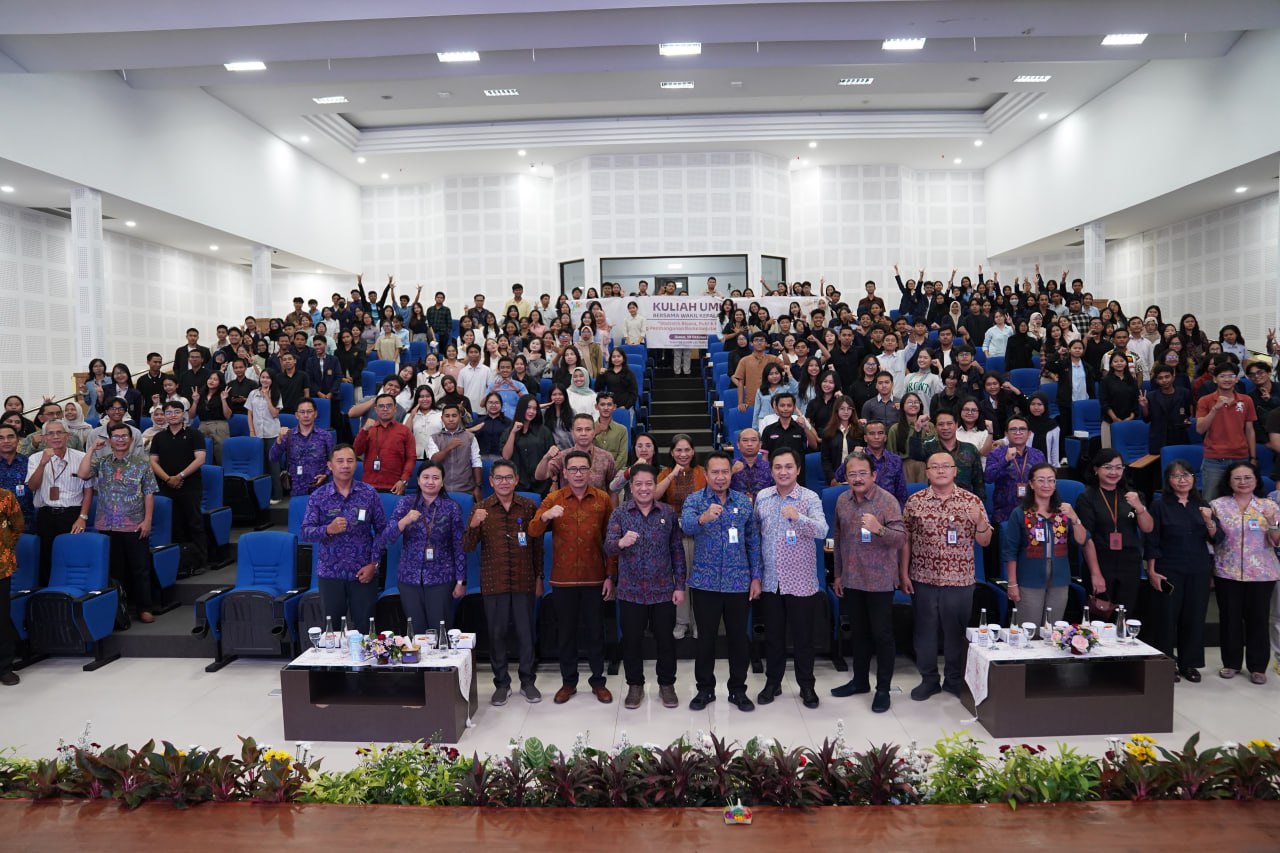BPS RI Strengthens Statistical Literacy at Udayana University Through the Establishment of a “Statistics Corner”
Jimbaran — The Central Bureau of Statistics of the Republic of Indonesia (BPS RI) in collaboration with Udayana University held a public lecture titled “Statistics Speak, Public Trusts: Designing Sustainable Development in the Era of Data Revolution.” The event took place at the Theater Room, Lecture Building, Bukit Jimbaran Campus, on Friday, October 10, 2025.
The public lecture featured Dr. Sonny Harry Budiutomo Harmadi, S.E., M.E., CRGP, Deputy Head of BPS RI, as the keynote speaker, and was officially opened by Prof. Ir. I Ketut Sudarsana, S.T., Ph.D., Rector of Udayana University. The session was moderated by Mery Linda Kesuma, SST, MPP, M.A., Ph.D. from BPS Bali Province.
Also in attendance were the Head of BPS Bali Province and staff, Heads of BPS Regency and City Offices across Bali Province, senior BPS officials, as well as Vice Rectors, Deans, University Leaders, and Students of Udayana University.
In his opening remarks, Rector Prof. Sudarsana expressed his appreciation to BPS for organizing the event, which he described as highly relevant to today’s challenges.
“Data is not merely numbers—it is the language of development. Statistical literacy is a crucial skill that enables the academic community to read, interpret, and utilize data in research, innovation, and community service,” he stated.
He further emphasized that collaboration between BPS and universities is essential to ensure that data does not merely remain within bureaucratic systems but is transformed into knowledge and policies that bring tangible benefits to society.
In his presentation, Dr. Sonny Harry Budiutomo Harmadi explained the strategic role of BPS as the provider of official statistical data serving as the foundation for government policymaking. He highlighted several routine BPS activities, including the Monthly Survey of Medium and Large Industries, which involves 3,070 respondents from a population of 37,000 industries using a probabilistic sampling method.
BPS also conducts national-scale censuses, such as the Population Census, Agricultural Census, and Economic Census, to provide a comprehensive overview of Indonesia’s social, economic, and productive sectors.
Dr. Sonny further elaborated on key statistical indicators produced by BPS, including Gross Domestic Product (GDP), which is calculated using 1,058 variables, making it more comprehensive than conventional economic models. Other major indicators include inflation, poverty, and various socioeconomic indicators that support evidence-based public policy.
During the session, Dr. Sonny also announced BPS’s plan to support the establishment of a “Statistics Corner” at Udayana University.
“We hope this remarkable university can work together with BPS to promote statistical literacy. Currently, Udayana University does not yet have a Statistics Corner, and we are ready to support its establishment,” he said.
In his presentation, he described the Statistics Corner as a collaborative initiative between BPS and universities, serving as a learning hub for statistical capacity building. Through this program, students and academics are engaged as statistical ambassadors in various activities such as statistical education and promotion, data utilization for theses and research, and the development of statistical methods for community engagement.
This initiative marks a strategic step in strengthening synergy between BPS and the academic community while promoting statistical literacy among students as a key foundation for sustainable national development.





